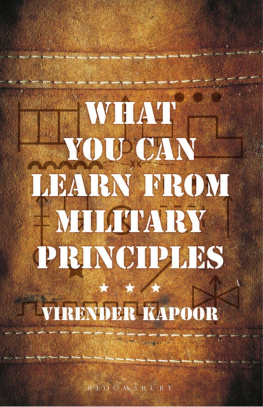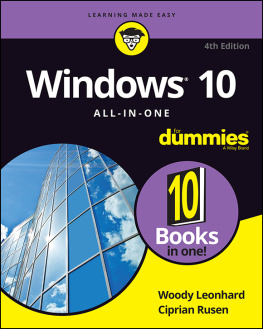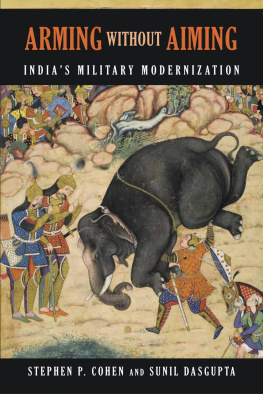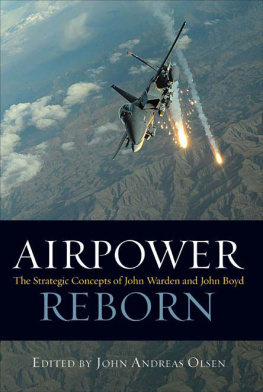Robert Leonhard - The Principles of War for the Information Age
Here you can read online Robert Leonhard - The Principles of War for the Information Age full text of the book (entire story) in english for free. Download pdf and epub, get meaning, cover and reviews about this ebook. year: 2000, publisher: Presidio Press, genre: Romance novel. Description of the work, (preface) as well as reviews are available. Best literature library LitArk.com created for fans of good reading and offers a wide selection of genres:
Romance novel
Science fiction
Adventure
Detective
Science
History
Home and family
Prose
Art
Politics
Computer
Non-fiction
Religion
Business
Children
Humor
Choose a favorite category and find really read worthwhile books. Enjoy immersion in the world of imagination, feel the emotions of the characters or learn something new for yourself, make an fascinating discovery.

- Book:The Principles of War for the Information Age
- Author:
- Publisher:Presidio Press
- Genre:
- Year:2000
- Rating:5 / 5
- Favourites:Add to favourites
- Your mark:
- 100
- 1
- 2
- 3
- 4
- 5
The Principles of War for the Information Age: summary, description and annotation
We offer to read an annotation, description, summary or preface (depends on what the author of the book "The Principles of War for the Information Age" wrote himself). If you haven't found the necessary information about the book — write in the comments, we will try to find it.
The Principles of War for the Information Age — read online for free the complete book (whole text) full work
Below is the text of the book, divided by pages. System saving the place of the last page read, allows you to conveniently read the book "The Principles of War for the Information Age" online for free, without having to search again every time where you left off. Put a bookmark, and you can go to the page where you finished reading at any time.
Font size:
Interval:
Bookmark:
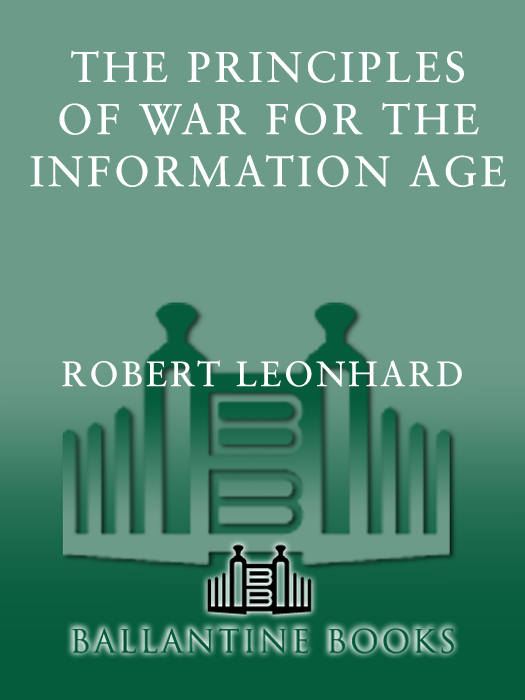
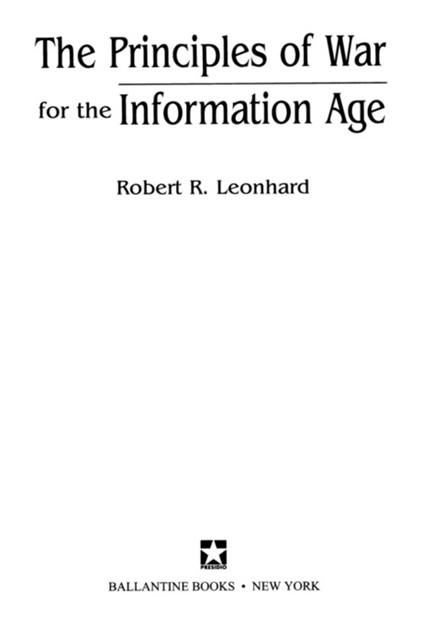
A Presidio Press Book
Published by The Ballantine Publishing Group
Copyright 1998 Robert R. Leonhard
All rights reserved under International and Pan-American Copyright Conventions. Published in the United States by The Ballantine Publishing Group, a division of Random House, Inc., New York, and simultaneously in Canada by Random House of Canada Limited, Toronto.
Presidio Press is a trademark of Random House, Inc.
www.ballantinebooks.com
Library of Congress Cataloging-in-Publication Data
Leonhard, Robert R.
The principles of war for the information age / Robert R. Leonhard.
p. cm.
eISBN: 978-0-307-54274-8
1. Military art and scienceForecasting. 2. WarForecasting.
3. Information technology. I. Title.
U21.2.L397 1998
355.02dc21
98-8287
v3.1
Over the centuries, military strategists and commanders have sought to decipher the complexities of warfare. They examined the great captains, hoping to distill their insights for future success. These insights became maxims that were further developed and refined during the Napoleonic era and then transitioned to industrial age warfare. By the mid-nineteenth century, they became known as the principles of war. For more than 100 years, these fundamental tenets have guided the U.S. Army. Despite massive changes in warfare over the last two centuries, these time honored principles have shown remarkable resilience.
The advent of the information age may change that. We are on the cusp of a revolution in precision. New and developing technologies will alter the future of warfare, providing tremendous increases in knowledge and speed. Knowledge enables us to know where we are, where our friends are, and where the enemy is. Speed will take the form of rapid deployment and high-tempo, pulsed operations that seeks to destroy an opponents will to resist. The symbiotic relationship of knowledge and speed will allow the ability to maneuver under precision to attack targets that will cripple the opponents center of gravity and destroy his will to resist.
But much about warfare will remain true to its past. War always has been a contest of wills. Centers of gravity will remain relevant. The key to future victories will be the collapse of the enemys will to resist, while protecting our own troops. Time will remain a critical element in battle, and both sides will try to control it. Changes in the art of warfare will continue to follow technologically driven cycles. These traits of war are immutable.
Tensions in the continuity in warfare raise the critical question of whether the principles of war will remain valid under the conditions of information age warfare. Robert Leonhard has done all of us studying future warfare a great service by examining this issue in detail. His arguments are provocative; they confront long-accepted convictions. He challenges us to strip away preconceptions and to reexamine the principles of war in a new context. Dialogue and debate, especially in times of dynamic change, are indispensable for developing and refining ideas. From these debates spring the seeds of change.
Increasingly, our young army officers do not include themselves in the great doctrinal debates, nor are they challenged enough to investigate the principles which form the very basis of our profession. This is their opportunity to get in on the ground floor of a debate that could fundamentally change the way we fight. Lieutenant Colonel Leonhard is one of the few young officers who has stepped forward to join the debate, and he does so with enormous energy and intellect. Whether one agrees or disagrees with all of the premises in this work is secondary to the dialogue that it will generatebut that debate must take place. Only through a reasoned and vigorous give-and-take will we be able to refine the ideas that are vital to the continued evolution of our army as we prepare for war in the twenty-first century.
Robert H. Scales Jr.
Major General, U.S. Army
Commandant, U.S. Army War College
The eminent educational philosopher and psychologist Dr. Jean Piaget wrote that education is what you rely upon when you face the unknown. Lieutenant Colonel Robert R. Leonhards new book is a major contribution to military education in Piagets sense. The author offers a way to confront military problems of the future with innovative solutions.
This book is unique in at least two respects. First, as a contribution to professional education, the work goes beyond a motor pool and rifle range approach to topical military issues. Since the end of the Gulf War, the U.S. Army has moved from its post-Vietnam emphasis on education toward a renewed stress on training. Training gives education its practical significance; the two are opposite ends of the same continuum of learning. Both demand creativity, rigor, and insight. Training tends to be repetitive, rote, and methodical. Its purpose is to provide swift, responsive, and reflexive action in a deadly environment. Education, on the other hand, is reflective, integrative, and pattern-seeking. Just as training deals with the lethality of warfare, education confronts ambiguity. Bob Leonhards contribution is to offer a new set of principles that can aid military leaders by imposing intellectual coherence upon an inherently complex and complicated phenomenon.
His second contribution is to analyze, critique, and recast the principles of war anew. The classical principles of war have too often been used as cheat codes, a seemingly convenient list of ways to obviate the complexities and distressing paradoxes of armed violence. Leonhard is one of the few military theorists to make a comprehensive reexamination of the principles of war since their early expression in the 1920s by Major General J. F. C. Fuller; the other writer that comes to mind is former army colonel John Alger. What is unique about Leonhards book is that he has reformulated the principles in light of the broader context of military history and the emerging potentials of the future.
The principles of war are heuristic devices: rules of thumb that offer a quick entry into the solution of a problem. Instead of searching its entire knowledge base from scratch each time it tackles a problem, the mind employs ready to use rules of thumb that give swift and reliable access to solutions to a common set of problems. The principles of war provide just this kind of unique access. Nevertheless, as Leonhard reminds the reader, the principles do not provide a complete solution in the military decision making process, only the beginning of one. In the investment arena, for instance, a tried and true principle of stock trading is buy low and sell high. Behind this truism the investor must bring to bear a vast store of experience, knowledge, and understanding about the market before he invests even a penny. Principles, thus, are not substitutes for professional understanding, experience, and education. They can never become a mere checklist; for, as the late air force colonel John Boyd once said, If you drop your checklist, your brains are below your feet.
Solutions to military problems are complex and convoluted, are seldom self-evident and may actually be contradictory. Even more troublesome for the military decision maker is the fact that warfare constantly evolves and reconstructs itself, mangling and ruffling itself in new and wondrous ways that are rarely evident.
Font size:
Interval:
Bookmark:
Similar books «The Principles of War for the Information Age»
Look at similar books to The Principles of War for the Information Age. We have selected literature similar in name and meaning in the hope of providing readers with more options to find new, interesting, not yet read works.
Discussion, reviews of the book The Principles of War for the Information Age and just readers' own opinions. Leave your comments, write what you think about the work, its meaning or the main characters. Specify what exactly you liked and what you didn't like, and why you think so.

